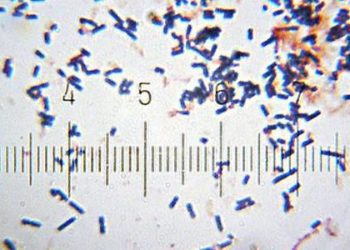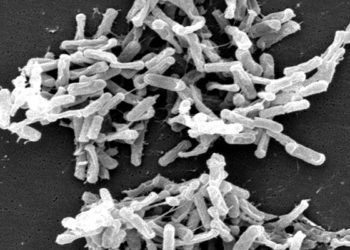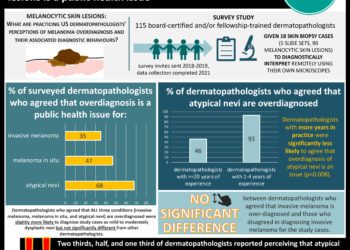Molecular testing for Clostridium difficile may not predict disease activity
1. Based on this prospective cohort study, only half of the patients who tested positive for the Clostridium difficile (C. difficile) polymerase chain reaction (PCR) also tested positive for the toxin (Tox), and the patients who were tox negative and PCR positive (Tox-/PCR+) had diarrhea that was less severe, had fewer days of antibiotic exposure, and had less colonic inflammation compared to the Tox+/PCR+ group.
2. Only about one in ten patients who were Tox-/PCR+ received a complete course of antibiotics. The number of days of diarrhea in Tox+/PCR+ was the most, whereas days of diarrhea was the same in the Tox-/PCR+ and Tox-/PCR- groups. Also, C. difficile infection (CDI) related complications/death was practically non-existent in the Tox-/PCR+ group, but was present in the Tox+/PCR+ group.
Evidence Rating Level: 2 (Good)
Study Rundown: C. difficile is a major health-care associated infection, and can lead to significant morbidity and cost. CDI has increased by more than 200% since the year 2000. While toxin assays were the mainstay for diagnoses, molecular assays which detect the presence of microbial DNA are now routinely used. However, there is concern that the molecular assay may be over-diagnosing CDI, since a significant number of patients may be colonized by the bacterium, but not have the toxin-mediated disease. This study was conducted to compare the outcomes amongst hospitalized patients with diarrhea depending on the positivity of these two tests.
The results showed that only half of the patients who tested positive for the C. difficile PCR also tested positive for the toxin, and the patients who were Tox-/PCR+ had diarrhea that was less severe, fewer days of antibiotic exposure, and less colonic inflammation compared to the Tox+/PCR+ group. Only about one in ten patients who were Tox-/PCR+ received a complete course of antibiotics. The number of days of diarrhea in Tox+/PCR+ was the most, whereas days of diarrhea was the same in the Tox-/PCR+ and Tox-/PCR- groups. Also, CDI-related complications/death was practically non-existent in the Tox-/PCR+ group, but was present in the Tox+/PCR+ group. The strength of the study was the generally wide inclusion criteria for hospital-associated diarrhea. The tests used for diagnosis are the most widely available ones, so the results are applicable. A weakness of the study was the fact that some Tox-/PCR+ patients were treated with antibiotics, which confounds the results.
Click to read the study, published today in JAMA Internal Medicine
Relevant Reading: Clinical relevance of a positive molecular test in the diagnosis of Clostridium difficile infection.
In-Depth [prospective cohort]: This was a single-center, prospective cohort study performed at the University of California Davis Medical Center from 2010 to 2012. Inclusion criteria were submission of a diarrheal stool sample seventy-two hours or longer after hospital admission. Formed stool samples were excluded. The toxin immunoassay and the PCR test were run on all samples, and separated into the following categories: Tox+/PCR+, Tox-/PCR+, Tox-/PCR-. The primary outcome was duration of diarrhea, and secondary outcome was CDI-related complications/death. Ten or more days of metronidazole or oral vancomycin was considered full treatment.
There were 1416 patients included, with the following breakdown: 131 Tox+/PCR+ (9.3%), 162 Tox-/PCR+ (11.4%), 1123 Tox-/PCR- (79.3%). Of the patients with the positive PCR, only 44.7% also had toxin detected. The average number of days of diarrhea was 2 for both the Tox-/PCR- and Tox-/PCR+ groups, but it was 3 for Tox+/PCR+ group. There were ten CDI-related complications and eleven CDI-related deaths in the Tox+/PCR+ group, whereas there were no CDI-related complications and one CDI-related death in the Tox-/PCR+ group.
Image: PD
©2015 2 Minute Medicine, Inc. All rights reserved. No works may be reproduced without expressed written consent from 2 Minute Medicine, Inc. Inquire about licensing here. No article should be construed as medical advice and is not intended as such by the authors or by 2 Minute Medicine, Inc.







